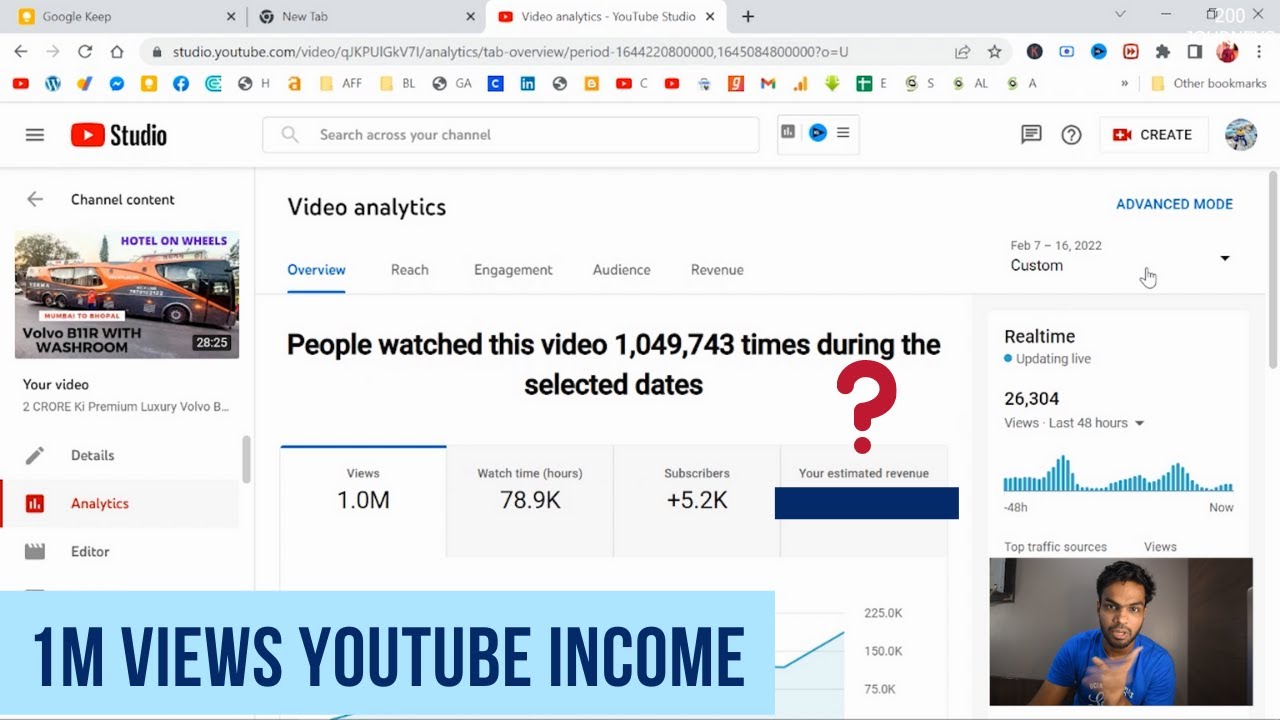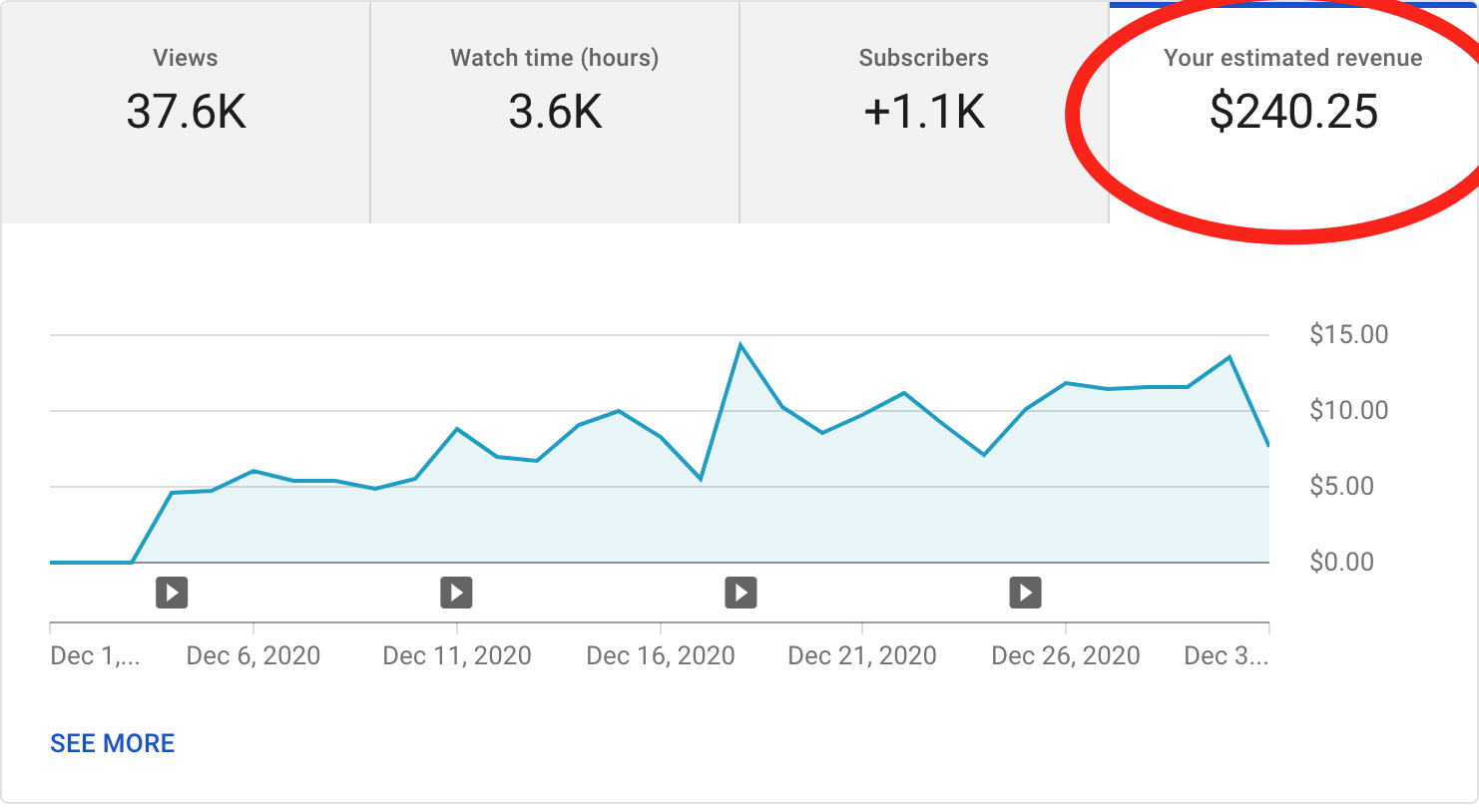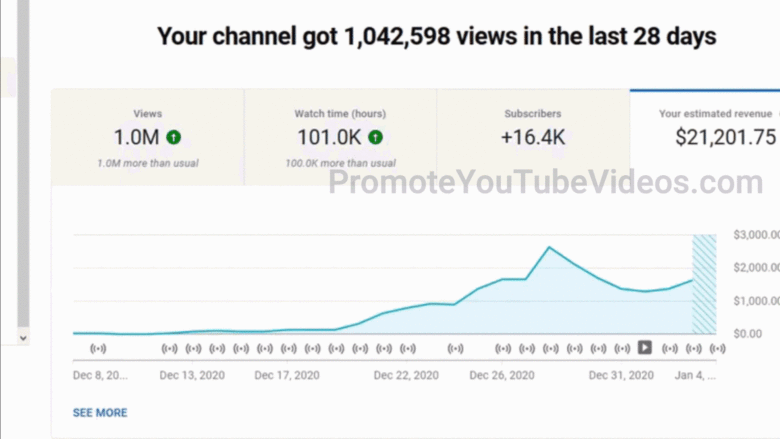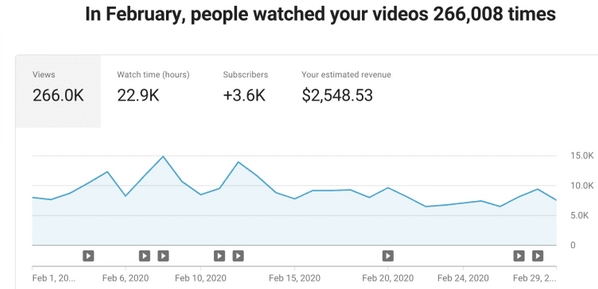YouTube monetization can seem like a labyrinth of numbers and strategies, especially if you're eyeing the potential earnings from 8 million views. If you've ever wondered how content creators turn their passion for video into actual income, you’re in the right place. Let’s dive into the various ways YouTube allows creators to earn money, breaking down terms and concepts in a way that makes it easy to grasp.
YouTube monetization primarily revolves around ads, but it’s not just about throwing ads on every video. Creators need to meet specific requirements set by YouTube to qualify for monetization. This typically involves:
- Having at least 1,000 subscribers.
- Accumulating 4,000 valid public watch hours in the past 12 months.
- Adhering to YouTube's monetization policies.
- Setting up an AdSense account to receive payment.
Once monetized, a creator can earn money through:
- Ad Revenue: This is the most common income source, where creators earn money based on ad views and clicks.
- Channel Memberships: Subscribers can pay a monthly fee for exclusive content and benefits.
- Super Chat and Super Stickers: Viewers can tip creators during live chats.
- Sponsorships: Brands may partner with creators for paid promotions.
Understanding these avenues is crucial for any creator looking to monetize their channel effectively. After all, knowing the ins and outs can significantly impact how much profit can be generated from those 8 million views.
Factors Influencing Earnings Per View

The journey to understanding how much you can earn from 8 million YouTube views isn't a straightforward one. Several factors come into play that can either boost or hinder your earnings. Let’s break them down!
First off, it's essential to understand that earnings are often calculated through a metric called CPM (Cost Per Mille), which represents how much advertisers are willing to pay for every 1,000 ad views. This can fluctuate depending on various elements:
| Factor | Impact on Earnings |
|---|---|
| Niche | Some niches, like finance or technology, tend to have higher CPMs due to more lucrative ad campaigns. |
| Audience Demographics | Viewers from countries like the USA or Canada often yield higher earnings compared to other regions. |
| Ad Engagement | Higher click-through rates and longer ad watch times can increase revenue substantially. |
| Video Length | Longer videos can accommodate more ads, thereby potentially increasing total revenue. |
| Time of Year | Advertisers may increase their spending during holidays, meaning higher CPMs during these periods. |
With these factors in mind, a quick calculation can lead to different earning estimates. For instance, if your CPM averages around $5, then from 8 million views, you could be looking at around:
Total Earnings = (Views/1000) x CPM = (8,000,000/1000) x $5 = $40,000.
But remember, this is just a simplified view! Actual earnings can vary based on viewer interactions, geographical factors, and more. So, as exciting as those 8 million views are, the true earnings depend on a beautiful cocktail of factors that all come together in the YouTube ecosystem.
Estimating Income from 8 Million Views

When it comes to estimating income from YouTube views, a common question arises: how much can a creator really earn from 8 million views? The truth is, there's no one-size-fits-all answer. Earnings can vary significantly based on several factors, such as the type of content, engagement rate, and the demographics of the audience. However, we can provide a rough estimate to give you an idea of what you might expect.
On average, YouTube creators earn between $0.01 to $0.03 per view. So, with 8 million views, the earnings can range considerably:
- Low Estimate: At $0.01 per view, 8 million views would yield approximately $80,000.
- High Estimate: At $0.03 per view, that would bump the total up to around $240,000.
Keep in mind that this range can fluctuate based on the quality of the content, the engagement level of the viewers (likes, shares, comments), and other revenue sources like sponsorships or merchandise sales. For instance, a highly engaged audience might fetch a higher CPM (cost per thousand views), particularly for niche content that attracts a specific demographic, thus increasing the overall earnings.
Ad Revenue Breakdown

Understanding how ad revenue works on YouTube can illuminate why some channels are more lucrative than others. The majority of YouTube income typically stems from ads placed on videos. Here's a quick breakdown of how that operates:
| Ad Type | Description | Estimated Revenue |
|---|---|---|
| Display Ads | Banners that appear on the right-hand sidebar of the video. | Typically low, adds minimal income. |
| Overlay Ads | Ad banners that appear on the lower part of the video. | Similar to display ads, adds moderate revenue. |
| Skippable Video Ads | Ads that viewers can skip after five seconds. | Higher CPM due to viewer choice. |
| Non-skippable Video Ads | Ads that must be watched before the video starts. | Higher earnings, but can lead to viewer frustration. |
| Bumper Ads | Short, non-skippable ads of up to 6 seconds. | Effective for brand awareness. |
Additionally, revenue per 1,000 views can vary by location. Ads served to viewers in countries with higher ad spend (like the U.S. or Canada) often yield more revenue. To optimize earnings, video creators often target ads based on audience interests, ensuring that the ads shown are relevant and well-received, which ultimately boosts viewer engagement and potential earnings.
Alternative Income Sources on YouTube

YouTube is not just about ad revenue; it opens the door to various alternative income streams for content creators. Diversifying income sources can greatly enhance a YouTuber's financial stability. Let’s explore some popular avenues:
- Merchandise Sales: Many YouTubers create and sell their own merchandise. This can range from t-shirts and mugs to specialized products related to their channel's theme.
- Channel Memberships: By offering exclusive content and perks to subscribers through channel memberships, YouTubers can generate monthly recurring income from their dedicated fans.
- Sponsorship Deals: Collaborating with brands for sponsored content can be lucrative. Companies often pay creators to promote their products or services, giving YouTubers a substantial income boost.
- Affiliate Marketing: By including affiliate links in video descriptions, YouTubers can earn commissions from sales generated through these links, adding another layer of income.
- Patreon and Crowdfunding: Some creators turn to platforms like Patreon, where fans can support them financially in exchange for exclusive content or behind-the-scenes access.
Each of these avenues not only complements ad revenue but may also strengthen the creator's connection with their audience. Cultivating a diverse income portfolio helps safeguard against fluctuations in ad revenue, creating a more sustainable career on YouTube.
Case Studies of Successful YouTubers
Looking at successful YouTubers can provide insightful lessons on what it takes to build a thriving channel. Each of them has unique strategies, yet they share some common elements. Here are a couple of notable examples:
| YouTuber | Channel Niche | Unique Strategy | Estimated Earnings |
|---|---|---|---|
| PewDiePie | Gaming/Entertainment | Engaging storytelling and humor. | $1 million - $12 million per year |
| Michelle Phan | Beauty/Fashion | Leveraged tutorials and beauty brands. | $500,000 - $1 million per year |
PewDiePie, for instance, has turned gaming into an art form with his charismatic commentary, attracting millions of viewers consistently. On the flip side, Michelle Phan became a beauty mogul by showcasing her skills in makeup tutorials, leading her to create her own makeup line.
These creators demonstrate that understanding your audience, being consistent, and diversifying income sources are keys to sustaining success on YouTube. Whether through personal branding or innovative marketing, learning from such case studies can inspire new creators to define their path in the vast world of YouTube.
Understanding the Earnings from 8 Million YouTube Views
When it comes to monetizing content on YouTube, the number of views significantly influences potential earnings. But how much can you actually earn from 8 million views? The earnings can vary widely due to several factors, including country, audience demographics, and the niche of the content. Below, we break down the key elements that affect YouTube earnings.
Factors Influencing YouTube Earnings
- Ad Revenue: The primary source of income for most YouTubers comes from ads displayed on their videos. YouTube pays creators through the AdSense program, where earnings are typically measured in terms of Cost Per Mille (CPM), or the cost per 1,000 impressions.
- CPM Rates: Average CPM rates can vary between $0.25 to $4.00, depending on location and niche. Some premium niches, like finance or technology, may even earn upwards of $10.00 per 1,000 views.
- Audience Engagement: Higher engagement can lead to a better CPM as advertisers prefer ads shown on videos with more viewer interaction.
- Geography: Viewers from countries like the USA, Canada, and Australia generally generate higher CPMs due to the purchasing power of audiences in these regions.
Estimated Earnings Calculation
To estimate earnings from 8 million views, let’s consider various CPM rates:
| CPM Rate | Estimated Earnings |
|---|---|
| $0.25 | $2,000 |
| $2.00 | $16,000 |
| $4.00 | $32,000 |
| $10.00 | $80,000 |
These figures illustrate the potential earnings range, which can fluctuate based on aforementioned factors.
Conclusion: Maximizing Earnings from Your YouTube Channel
To maximize earnings from your YouTube channel, focus on creating quality content that engages your audience, optimize monetization strategies, and explore additional revenue sources like sponsorships and merchandise sales.
 admin
admin








